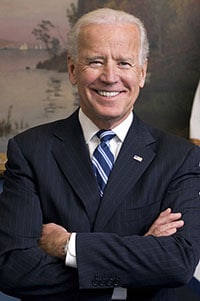General Chairperson Adren Crawford of GO-433 (Canadian National — Illinois Central) had the following op-ed column published in the Tennessean on June 26.
To anyone who thinks America’s labor unions aren’t relevant, think again.
In what has become both a sad and challenging time in our history, unions are more important than ever — and with Joe Biden as president, they’ll be stronger.
For example, the United Auto Workers are now part of the healthcare system, with members building life-saving ventilators at Ford and General Motors.
United Food and Commercial Workers are keeping the shelves stocked, ensuring that we can put food on our tables and enjoy meals with our families.
Members of the Service Employees International Union are standing on the front lines in hospitals and clinics.
Sheet Metal, Air, Rail, and Transportation (SMART) union members have worked tirelessly running freight trains to maintain the flow of goods — such as delivering chlorine-based disinfectants for water, enabling e-commerce, transporting food, and other essential products.
The list goes on.
Let’s take stock of this historic moment — and, as we march toward the other side of the COVID crisis, let’s recommit to organized labor.
Simply put: Union workers are our heroes right now.
The fact that they’re well-organized at this critical time allows them to push for the necessary personal protective equipment, safe working conditions, and overtime wages that they need in order to support all of us.
Union workers’ courage stands in stark contrast to the behavior of corporations and anti-labor politicians who have spent decades waging war on organizing and collective bargaining.
The predictable results: Stagnant wages, loss of pensions, and exploitation of workers.
As president, Joe Biden intends to correct these inequities.
He will:
• Check the abuse of corporate power and hold executives accountable.
This means penalizing employers who pretend to bargain with employee unions while sidestepping meaningful agreements with their workers and also ensuring that federal dollars don’t flow to employers who engage in union-busting activities.
• Encourage and incentivize unionization and collective bargaining.
This means extending the right to organize to independent contractors in a fast-growing segment of the economy, enforcing workplace rights for federal employees, and making sure that the National Labor Relations Board does its job in supporting workers.
• Ensure that employees receive the pay, benefits, and protections they deserve.
This means making the minimum wage an actual living wage, directing the Occupational Safety and Health Administration to expand its enforcement of workplace-safety laws, and protecting undocumented immigrants who report labor violations.
Most importantly, Joe Biden knows that labor rights are civil rights and that the strength of unions is their diversity.
In the days, weeks, months, and years ahead, we owe it to all of our brothers and sisters of color to listen, reflect on our own actions, and recommit ourselves to the fight for economic and social justice.
When we emerge stronger after the multiple crises facing our nation, let’s remember the critical role that the American labor movement played in both our economy and our society.
Finally, let’s support Joe Biden for president and renew our commitment to labor — and let us never forget the individual workers who pulled us through this crisis and led the fight for economic and social justice.
Adren Crawford is a general chairperson and proud member of the International Association of Sheet Metal, Air, Rail, and Transportation Workers.
Author: bnagy
General Chairperson John Ellis (Los Angeles County MTA) reports that Brother Wilfredo Corsino, a member out of Local 1607 (Los Angeles, Calif.), passed away on June 11 from COVID-19 complications.
“Brother Corsino has been a part of our Union UTU/SMART since 1996,” Ellis said. “He was a 23-year veteran and a consistent supporter of the Union cause.”
Corsino began his career with LACMTA and worked out of Divisions 7, 10, and 13.
“On a personal level, many operators remember Brother Corsino’s infectious laugh and his love for Metro,” Ellis said. “Many of his co-workers stated that he was a great ping-pong and pool player.”
Brother Corsino is the eighth active member of the SMART Transportation Division reported to the union as having passed away from the novel coronavirus.
The union offers its sincere condolences to Brother Corsino’s family and friends and his union brothers and sisters at Local 1607.
Joseph F. Szabo, of Munster, Ind., and formerly of Riverdale, Ill., a retired member of Local 1299 (Chicago, Ill.) passed away Friday, June 12, 2020.
But it was the camaraderie of railroading he loved and he remained close with former co-workers in retirement, particularly through the Dolton Elks.
Joseph was an avid lover of his afternoon martini, Big Band music and dancing, and his Chicago sports. He had a lifelong passion for the Chicago Cubs and loved taking his family to Wrigley Field. As an uncle, he was very close with his nieces, nephews and their families, and loved large family gatherings where he shared love, wisdom, stories and his wonderful sense of humor.
In retirement he served as a volunteer tax preparer for AARP, a volunteer Village Inspector in Riverdale, Ill., as a member of the Chicago South Suburban Mass Transit District Board and as chaplain for the Dolton Elks. Active in community theater earlier in his life, he enjoyed singing in the chorus at the Hartsfield Village Retirement Community.
He is survived by his loving children, Jo Carol (Thomas, dec) Clark, Susan (Richard) Stables, Peggy Szabo, former Federal Railroad Administrator and Illinois State Legislative Director Joseph C. Szabo (Local 120, Chicago, Ill.) and Clark (Diana) Szabo; and his precious grandchildren Carly Szabo, Megan Stables, Tori Szabo and Natalie Szabo.
Brother Szabo was preceded in death by his beloved wife of 57 years, Shirley; sisters Margaret Barber and Rose Stapleton; and his parents, Joseph and Theresia Szabo, who emigrated from Burgenland, Austria.
A funeral service will be held 6 p.m. Tuesday, June 16 at Solan Pruzin Funeral Home, 14 Kennedy Ave., Schererville, Ind. Friends may visit with the family 2 to 7 p.m. Tuesday at the funeral home. In lieu of flowers, donations may be made to Hospice of the Calumet Area or the Chicago Lighthouse.
SMART Transportation Division offers its sincere condolences to Brother Szabo’s family, his friends, Local 1299 and all who knew him.
U.S. rail unions have united in an effort to overturn the sequestration of Railroad Unemployment Insurance Act (RUIA) benefits that was enacted by a GOP-held Congress during the Obama administration and continues to reduce the unemployment and sickness benefits of railroaders nearly a decade later.
A large bloc of the unions are represented by AFL-CIO’s Transportation Trades Department (TTD), of which the SMART Transportation Division is a member.
A letter to U.S. Sens. Rob Portman and Sherrod Brown of Ohio sent by the union coalition requested that they jointly co-sponsor language consistent with the HEROES Act (H.R. 6800) to eliminate RUIA benefits from sequestration by amending the Balanced Budget and Emergency Deficit Control Act of 1985 to include RUIA among the other various programs that are not subject to sequestration. Portman, a Republican out of Cincinnati, is chairman of the Senate subcommittee that will make a decision on sequestration.
“Unlike the average U.S. worker, railroad employees do not receive unemployment benefits through state-administered unemployment insurance programs. Instead, unemployed railroaders receive these benefits through the RUIA program, which is administered by the United States Railroad Retirement Board (RRB),” TTD President Larry Willis said. “As a result of the Budget Control Act of 2011, RUIA (benefits) are subject to sequestration. No state unemployment insurance benefits in the country are subject to this unfair treatment.”
RUIA unemployment and sickness benefits are sequestered at 5.9%, and have been subject to reduction for nine years. These rates are adjusted when the federal sequestration is recalculated yearly.
Railroaders are urged to call Portman at (202) 224-3353 to tell him to exclude RRB sickness and unemployment benefits from those reductions.
Read the unions’ joint letter to the senators.
CLEVELAND, Ohio (June 5) — Following a second joint petition by the SMART Transportation Division (SMART-TD) and the Brotherhood of Locomotive Engineers and Trainmen (BLET), the Federal Railroad Administration (FRA) on June 3 granted another 60-day extension to time limits in which certain petitions for review must be filed with the Locomotive Engineer Review Board (LERB) and the Operating Crew Review Board (OCRB). Originally, the SMART-TD and BLET requested an extension on March 30, which the FRA granted on April 7.
In response to the unions’ second joint petition for extension, which was filed on May 27, the FRA wrote: “FRA considered the petitioners’ extension request and concluded that extending the previously granted relief would be in the public interest, necessary to address the COVID-19 public health emergency, and is not inconsistent with railroad safety. Accordingly, FRA grants an extension of temporary emergency relief from the 180- and 120-day deadlines in § 240.403(c) and (d), and § 242.503(c), so that the deadline for any petition that becomes due to be filed during the duration of this waiver is extended 60 days.”
Under FRA regulations governing certification of locomotive engineers, a petition seeking review of a railroad’s decision to deny certification or recertification must be filed with the LERB no more than 180 days after the date of the railroad’s denial decision, and a petition seeking review of a railroad’s decision to revoke certification must be filed with the LERB no more than 120 days after the date of the railroad’s denial decision. Similarly, under FRA regulations governing certification of conductors, a petition seeking review of a railroad’s decision to deny certification or recertification, or to revoke certification, must be filed with the OCRB no more than 120 days after the date of the railroad’s denial decision. Under the terms of the June 3 waiver extension, FRA granted temporary emergency relief from the 180- and 120-day filing deadlines, so that the deadline for any petition for review that becomes due to be filed during the duration of the waiver is extended 60 days.
A copy of the FRA waiver extension is available here. (PDF)
###
The SMART Transportation Division is comprised of approximately 125,000 active and retired members of the former United Transportation Union, who work in a variety of crafts in the transportation industry.
The Brotherhood of Locomotive Engineers and Trainmen represents nearly 58,000 professional locomotive engineers and trainmen throughout the United States. The BLET is the founding member of the Rail Conference, International Brotherhood of Teamsters.



